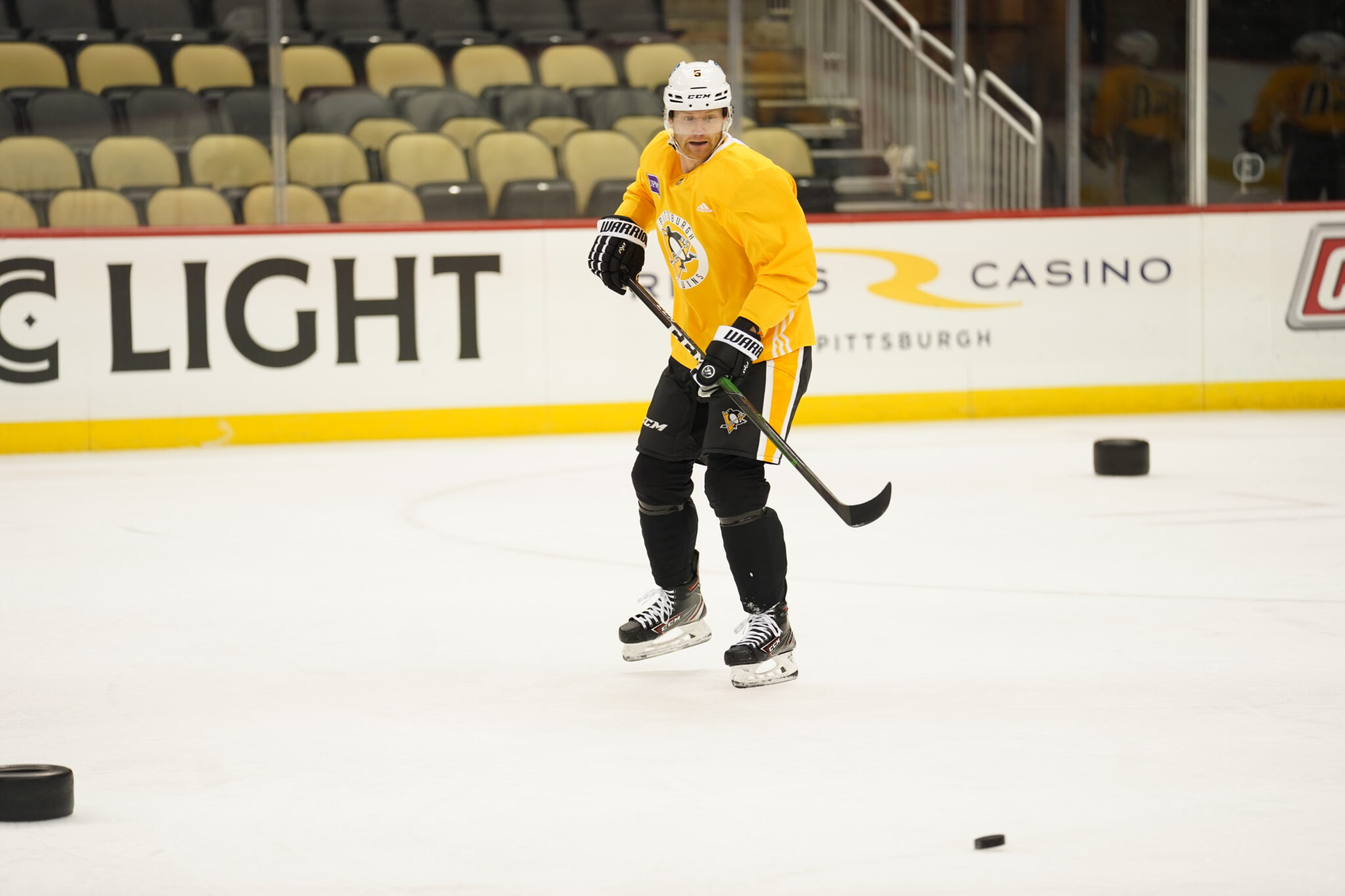Penguins
Penguins Comments Highlight Risk and Reward of Matheson Trade

It was no secret that defenseman Mike Matheson had a couple of down years with the Florida Panthers. Some things can’t be massaged or overlooked, no matter how fast Matheson can skate or how talented the defenseman may be, and the Pittsburgh Penguins are well aware of the situation.
When Penguins GM Jim Rutherford attempted to shed salary by trading Patric Hornqvist this summer, Rutherford didn’t find a willing trade market or anything he liked. By some accounts, the Penguins applied pressure to Hornqvist to waive his no-trade clause by telling him he could be waived.
Instead of saving money, Rutherford added salary when he traded for Matheson and fourth-liner Colton Sceviour. Combined, the pair will make just over $6 million this season. Hornqvist was set to make $5.5 million. While Sceviour’s $1.2 million AAV contract expires after this season, Matheson will have five more years at a $4.8 million.
That’s a long time and a lot of money for a 26-year-old defenseman who had two good years followed by two down years.
“In Florida, it seemed like things just kind of snowballed. It got to a point where I was just starting to lose confidence,” Matheson said unprompted on Tuesday. “Obviously, that’s on me. Going into this offseason, I didn’t hide from the fact that I need to get better in certain areas.”
Snowballed is an interesting term. It can also be used to describe Matheson’s biggest weakness. One hockey source close to Matheson told PHN that his mistakes could “snowball,” and that flaw has been with Matheson since his college days at Boston College.
Matheson is a supremely talented player. His speed is elite. He has offensive instincts and a good shot. He was so good that Florida lavished him with an eight-year contract after his rookie season.
Things went well…until they didn’t.
Now, there are two ways to look at the current situation with the Pittsburgh Penguins. The first is, “uh oh.” Rutherford acquired a player who admittedly lost confidence and has six years left on a hefty contract.
If Matheson doesn’t learn to stop the snowball, his $4.875 million AAV could make Rutherford’s five-year dish to Jack Johnson, whose ill-fated tenure ended after two seasons, look like the gold standard of fiscal responsibility.
The other side of the argument is multi-layered and could swing beautifully in the Penguins’ favor.
“The one thing that jumps out at me is his skating ability. He’s an elite skater, so we’re going to try to harness that and help Mike play to his strengths,” head coach Mike Sullivan said. “I also think his ability is complementary to the style of play and how we’re trying to play.”
Sullivan said assistant coach Todd Reirden has spent a lot of individual time with Matheson, virtually, before camp. Penguins defenseman Kris Letang has also praised Reirden as instrumental in his own development, as the two worked together early in Letang’s career.
In addition to Reirden, Matheson will have Letang as a mentor, as well. Letang and Matheson skate together in the offseason.
“I give Mike a lot of credit because sometimes it’s hard to take ownership for your game when it doesn’t go the way that you think it should,” Sullivan said. “…I think the fact that he takes ownership and responsibility for his performance and his body of work to this point suggests the maturity of his makeup. That’s the first step in making progress is recognizing you have some control over your ability to be proactive and improve in certain areas.”
People around Matheson believe the Penguins are the ideal situation. Not only has Letang been a distant mentor to Matheson for a few years, but now Letang is a direct influence on the new Penguins d-man. Letang is helping Matheson adapt to life with the Penguins and establishing a life in Pittsburgh.
Getting settled with a young family during a pandemic is no easy feat, and Matheson credited Letang for helping with that, too.
But on the ice is what matters. It will be a high risk, high reward for the Penguins.
“Now, it’s our job as a coaching staff to help him (improve). I think the biggest thing with Mike is–and we’re going to try to help him and put him in a position where he understands how to play to his strengths,” Sullivan said. “…and simplify his game where he doesn’t put himself in some difficult positions, I think that’s going to help him grow his game to the point where he’ll be a real impact player for us.”
The Penguins sacrificed Hornqvist but didn’t save the dollars they hoped. Instead, Rutherford opted to take talent over savings, but that talent is not without risk.
In Florida, Matheson had four head coaches in four years. Stanley Cup winner and one of the all-time winningest coaches, Joel Quenneville, was the last. Despite his success, Quenneville isn’t without criticism for his work with young or struggling players.
The Penguins are investing considerable resources to help that Matheson bloom. There is a line of defensemen who have blossomed with the Penguins, going back to Reirden’s first stint with the Penguins in 2010. From Matt Niskanen, Paul Martin, and recent talents like Ian Cole and Jamie Oleksiak, who improved under assistant coaches Sergei Gonchar and Jacques Martin, the Penguins have a knack for resurrecting flagging blueliners.
The Pittsburgh Penguins bet quite a lot on Matheson. High risk, high reward.


